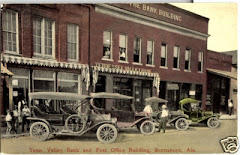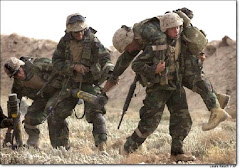
For some time now I have been researching censorship on the internet. I began my search in 2006 as I frequently post on several so called "public discussion forums." I have realized there are no "public discussion forums." There are individual or corporate owned message boards, "discussion forums," which allow monitored discussion from registered users. What is allowed is strictly up to the owners. An important question that all "public forum" owners might consider is the Supreme Courts ruling on what constitutes a public meeting place. Although a news outlet may be a privately owned enterprise, when they step out of their doors of the news room into the realm of "public discussion forums," do they fit into the "public street corner" definition of a "public meeting place? After all, wires, air waves and mass communications do fall under Federal Law. Another issue for forum owners is "net neutrality." Blog link to "net neutrality" issue http://renigade.blogspot.com/2008/03/internet-freedom-preservation-act-of.html
There does exist pretend "public discussion forums" owned by corporate media organizations. Wiki article on "internet forums": http://en.wikipedia.org/wiki/Internet_forum The forums are advanced message boards which are "moderated, "edited" by hired staff. They have rules and some of the rules are open for interpretation by "special users" and "moderators/editors." Then there are blogs, such as this one.
Let's look at the broad scope of censorship as it applies to the great world wide web, media and information in general. Wiki defines censorship, link: http://en.wikipedia.org/wiki/Censorship. Here are several definitions of censorship. Censor: One who supervises conduct and morals: as a) an official who examines materials (as publications or films) for objectionable matter; b) an official (as in time of war) who reads communications (as letters) and deletes material considered harmful to the interests of his organization. Censorship: The institution, system or practice of censoring; the actions or practices of censors; esp : censorial control exercised repressively. --Merriam Webster's Collegiate Dictionary
Censorship: The use of the state and other legal or official means to restrict speech.--Culture Wars, Documents from the Recent Controversies in the Arts, edited by Richard Bolton.
In general, censorship of books is a supervision of the press in order to prevent any abuse of it. In this sense, every lawful authority, whose duty it is to protect its subjects from the ravages of a pernicious press, has the right of exercising censorship of books.--The Catholic Encyclopedia (a publication of the Catholic Church)
What Is Censorship? Censorship is the suppression of ideas and information that certain persons -- individuals, groups or government officials -- find objectionable or dangerous. It is no more complicated than someone saying, "Don't let anyone read this book, or buy that magazine, or view that film, because I object to it!" Censors try to use the power of the state to impose their view of what is truthful and appropriate, or offensive and objectionable, on everyone else. Censors pressure public institutions, like libraries, to suppress and remove from public access information they judge inappropriate or dangerous, so that no one else has the chance to read or view the material and make up their own minds about it. The censor wants to prejudge materials for everyone.
For the ALA, technically censorship means the "The Removal of material from open access by government authority." The ALA also distinguishes various levels of incidents in respect to materials in a library which may or may not lead to censorship: Inquiry, Expression of Concern, Complaint, Attack, and Censorship.--The American Library Association (ALA)
The word "censorship" means "prior restraint" of First Amendment rights by government.--Morality in Media (Morality in Media is "a national, not-for-profit, interfaith organization established in 1962 to combat obscenity and uphold decency standards in the media.")
Censorship1. The denial of freedom of speech or freedom of the press.2. The review of books, movies, etc., to prohibit publication and distribution, usually for reasons of morality or state security.--Oran's Dictionary of Law
Censorship: official restriction of any expression believed to threaten the political, social, or moral order.--Encyclopedia.Com
Censorship - the prevention of publication, transmission, or exhibition of material considered undesirable for the general public to possess or be exposed to.--Fast Times' Political Dictionary (Fast Times is "a nonpartisan publication on contemporary world affairs & media with no political, ideological, or religious affiliation of any kind.")
Censorship: the cyclical suppression, banning, expurgation, or editing by an individual, institution, group or government that enforce or influence its decision against members of the public -- of any written or pictorial materials which that individual, institution, group or government deems obscene and "utterly" without redeeming social value," as determined by "contemporary community standards."--Chuck Stone, Professor of Journalism and Mass Communication, University of North Carolina
Censorship: The use of the state and other legal or official means to restrict speech.--Culture Wars, Documents from the Recent Controversies in the Arts, edited by Richard Bolton.
In general, censorship of books is a supervision of the press in order to prevent any abuse of it. In this sense, every lawful authority, whose duty it is to protect its subjects from the ravages of a pernicious press, has the right of exercising censorship of books.--The Catholic Encyclopedia (a publication of the Catholic Church)
What Is Censorship? Censorship is the suppression of ideas and information that certain persons -- individuals, groups or government officials -- find objectionable or dangerous. It is no more complicated than someone saying, "Don't let anyone read this book, or buy that magazine, or view that film, because I object to it!" Censors try to use the power of the state to impose their view of what is truthful and appropriate, or offensive and objectionable, on everyone else. Censors pressure public institutions, like libraries, to suppress and remove from public access information they judge inappropriate or dangerous, so that no one else has the chance to read or view the material and make up their own minds about it. The censor wants to prejudge materials for everyone.
For the ALA, technically censorship means the "The Removal of material from open access by government authority." The ALA also distinguishes various levels of incidents in respect to materials in a library which may or may not lead to censorship: Inquiry, Expression of Concern, Complaint, Attack, and Censorship.--The American Library Association (ALA)
The word "censorship" means "prior restraint" of First Amendment rights by government.--Morality in Media (Morality in Media is "a national, not-for-profit, interfaith organization established in 1962 to combat obscenity and uphold decency standards in the media.")
Censorship1. The denial of freedom of speech or freedom of the press.2. The review of books, movies, etc., to prohibit publication and distribution, usually for reasons of morality or state security.--Oran's Dictionary of Law
Censorship: official restriction of any expression believed to threaten the political, social, or moral order.--Encyclopedia.Com
Censorship - the prevention of publication, transmission, or exhibition of material considered undesirable for the general public to possess or be exposed to.--Fast Times' Political Dictionary (Fast Times is "a nonpartisan publication on contemporary world affairs & media with no political, ideological, or religious affiliation of any kind.")
Censorship: the cyclical suppression, banning, expurgation, or editing by an individual, institution, group or government that enforce or influence its decision against members of the public -- of any written or pictorial materials which that individual, institution, group or government deems obscene and "utterly" without redeeming social value," as determined by "contemporary community standards."--Chuck Stone, Professor of Journalism and Mass Communication, University of North Carolina
Lets now look at some definitions of "editing' and "forum standards" Wiki's definition of editing http://en.wikipedia.org/wiki/How_to_edit_a_page ; forum standards examples: http://www.spokane.net/stay_connected/ForumStandards.aspx#public ; more complex standards and rules: http://www.al.com/useragreement/
Forum Moderator definitions: Wiki-A Forum Moderator, often shortened to just mod, is a person granted special powers to enforce the rules of an Internet Forums (message boards). Almost all moderators on all forums can move discussions to different sections of the forum, close discussions, edit the content of individual postings, answer questions (or help people with problems), and stick discussions so they remain visible in their forum section even if no new postings are made to them. Different forums may give their moderators further powers, such as being able to block/ban people from the message board http://en.wikipedia.org/wiki/Forum_moderator .
How does all this apply to me, the internet and forum user. Education and the realization as long as you are on another's turf, there are rules, those rules may not be agreeable with your ideas of standards, values or morality. Fortunately we do not have internet censorship by government on political issues as practiced in China, or do we ?http://www.prisonplanet.com/articles/december2005/091205nothidden.htm another link http://www.aclu.org/freespeech/internet/index.html . The key to consistent successful forum posting is do not post anything profane, inflammatory, disagreeable, controversial, political, religious, sexual and/or personal in nature on the "pretend public discussion forums" and you will never be blocked, banned, suspended, removed and/or censored from posting on the "pretend public discussion forums."
If you have read my blog you will realize that I have been banned from posting on "al.com" on several occasions. It appears this time my "arklite" account on al.com has been permanently suspended. Why you may ask? For openly not agreeing with the Bush administration policy of torture and linking of parodies concerning the Bush administrations officials. My account was suspended previously for discussion and proving that specific local politicians and public officials were involved in illegal acts and activities. It seems in my case "censorship" has occured at the hands of the largest privately owned corporate media outlet in the United States, Advance Publications and their many media outlets. I'm sure the folks at al.com whose parent company is Advance Internet/Publications maintains that my bans and restrictions were as a result of the profanity expressed in some of the parody links listed. Heaven forbid the use of a cuss word. On other occasions when a post was removed or I was "banned" their standard reply was "violation of forum rules." Although I and others could not find a violation of rules and al.com has never replied with a specific reason when asked. Then the gall I have of telling you who I am in my profile, busting the dishonesty of anonymous posting, gone since my al.com forum account has been deleted. Anonymous posting is no more than the breeding of "lemmings and sheep" to keep quite while seemingly allowing open discussion about issues making the poster feel better about the issue while not being identified. People seem to be afraid of expressing how they feel about issues and being identified as the one expressing their thoughts. Another remarkable fact about this issue is the fact it was letters to the President of Advance Publications by me and one or two others which resulted in the return of the Scottsboro al.com site. This occured after being banned on the Huntsville site when talking about Scottsboro issues. I have suffered threats of bodily harm, called many names, have been accused of crime (lies) while disclosing the truth and my opinions of local and state politics and politicians. It seems some do not approve of citizen participation in government and citizen expression of real problems facing us a people. While my posts were censored by corporate censors other posters were allowed to make threats personally directed at me and many lies were directed at me by name. The posts were of such a threatening and aggrievous nature it took filing a Police and FBI complaint to convince the folks at al.com of the seriousness of the threats against me and to end the harassing and threatening communications. It was very peculiar that al .com would not allow my political speech but would allow threats and harassing communications directed at me by name.
Here we are, here and now. I still post on al.com not utilizing my forum name of arklite. I sign my posts so all will know it is I who is telling the story, or discussing an issue. Knowing who is doing the talking seems to be very threatening to some, I have yet to figure that one out.
I am interested to hear about your stories and experiences of what you think is "internet censorship." Please feel free to post and discuss this issue.
(Photobucket image by redarmymike)














2 comments:
I think socialism has finally arrived here.
Socialism has arrived to the United States of America.
Post a Comment